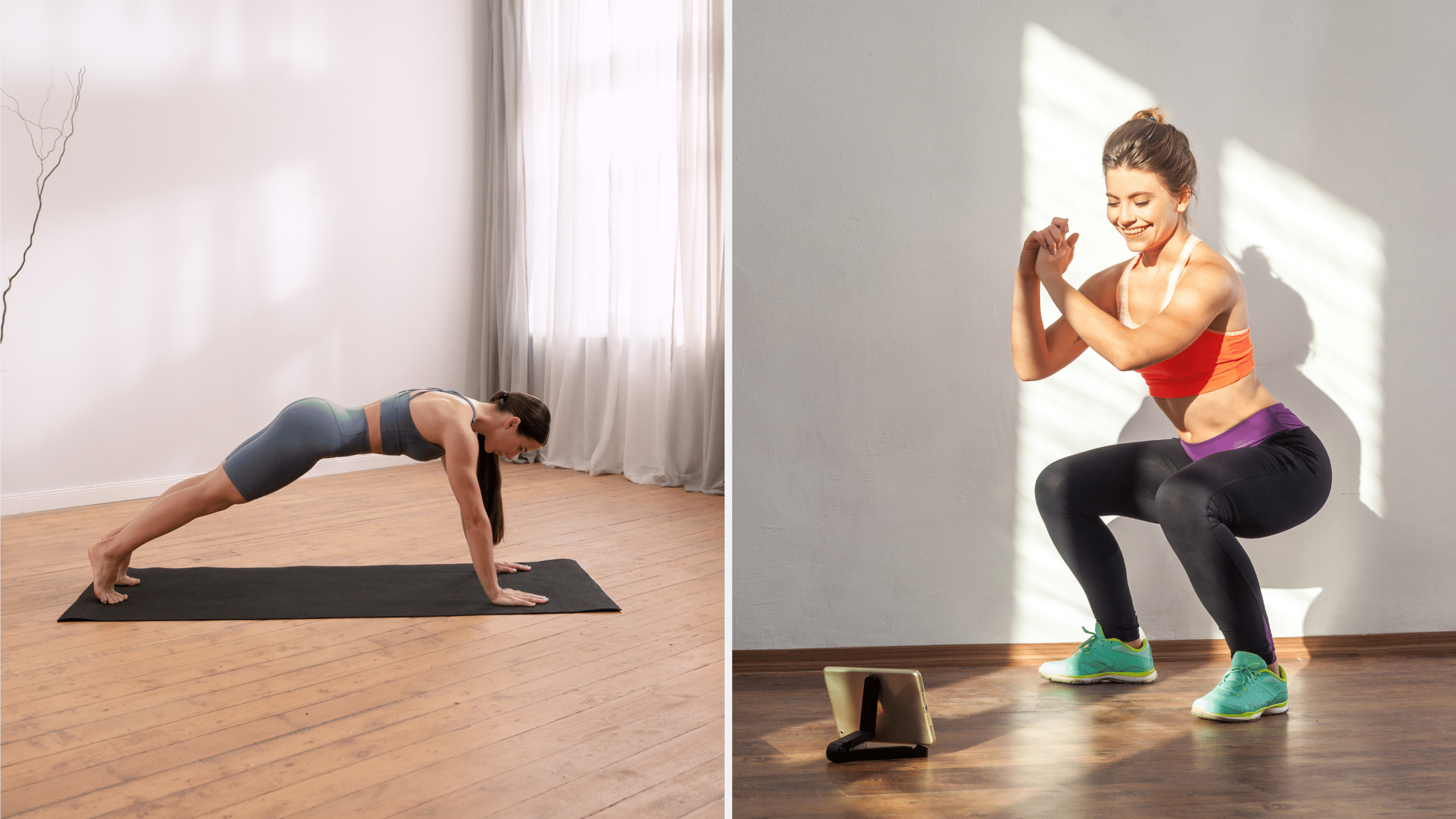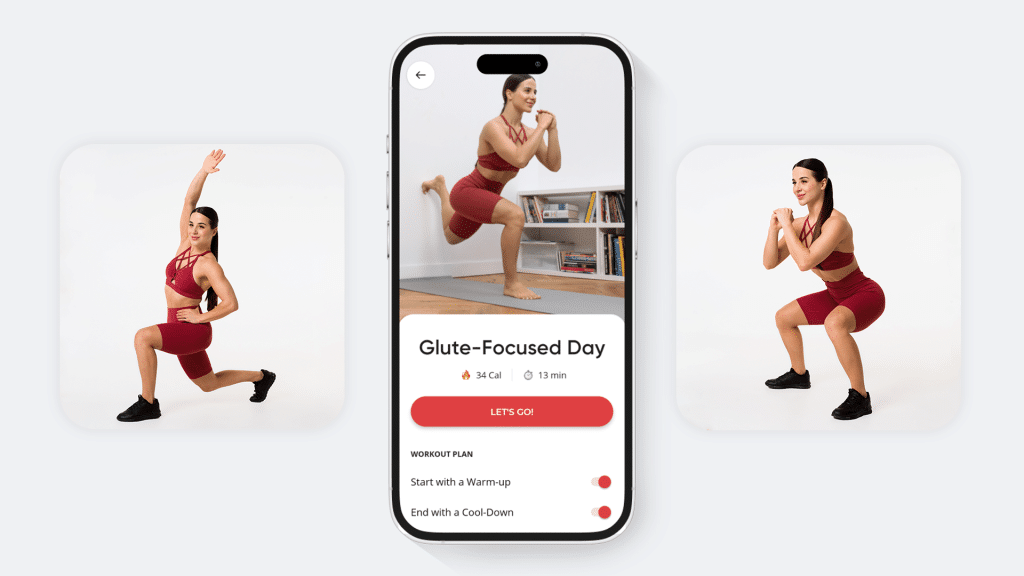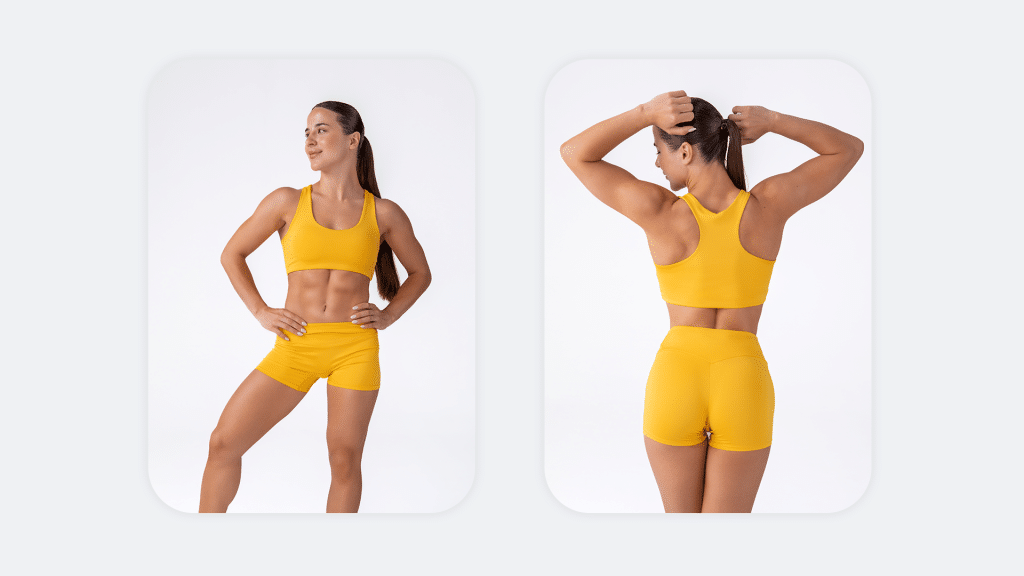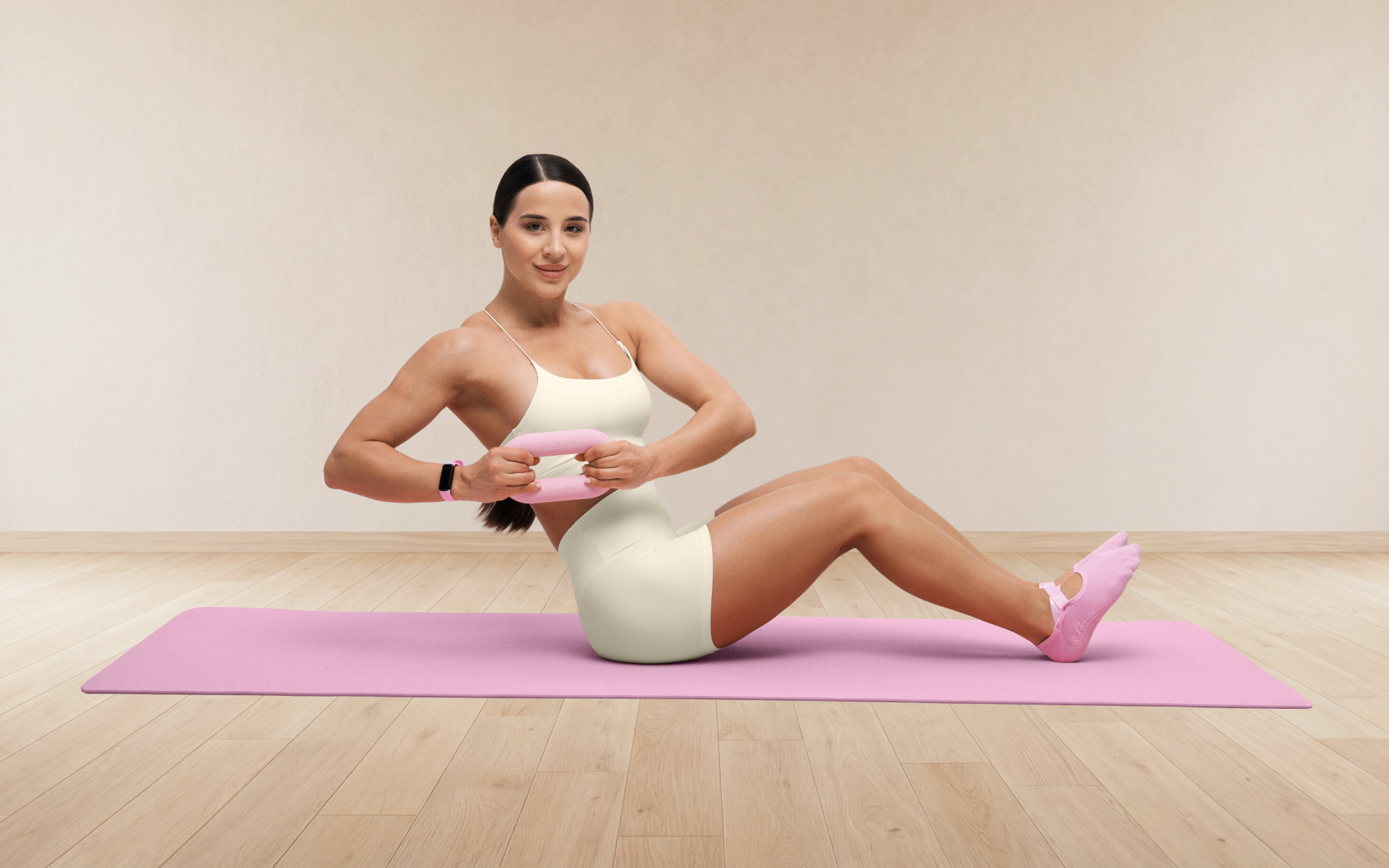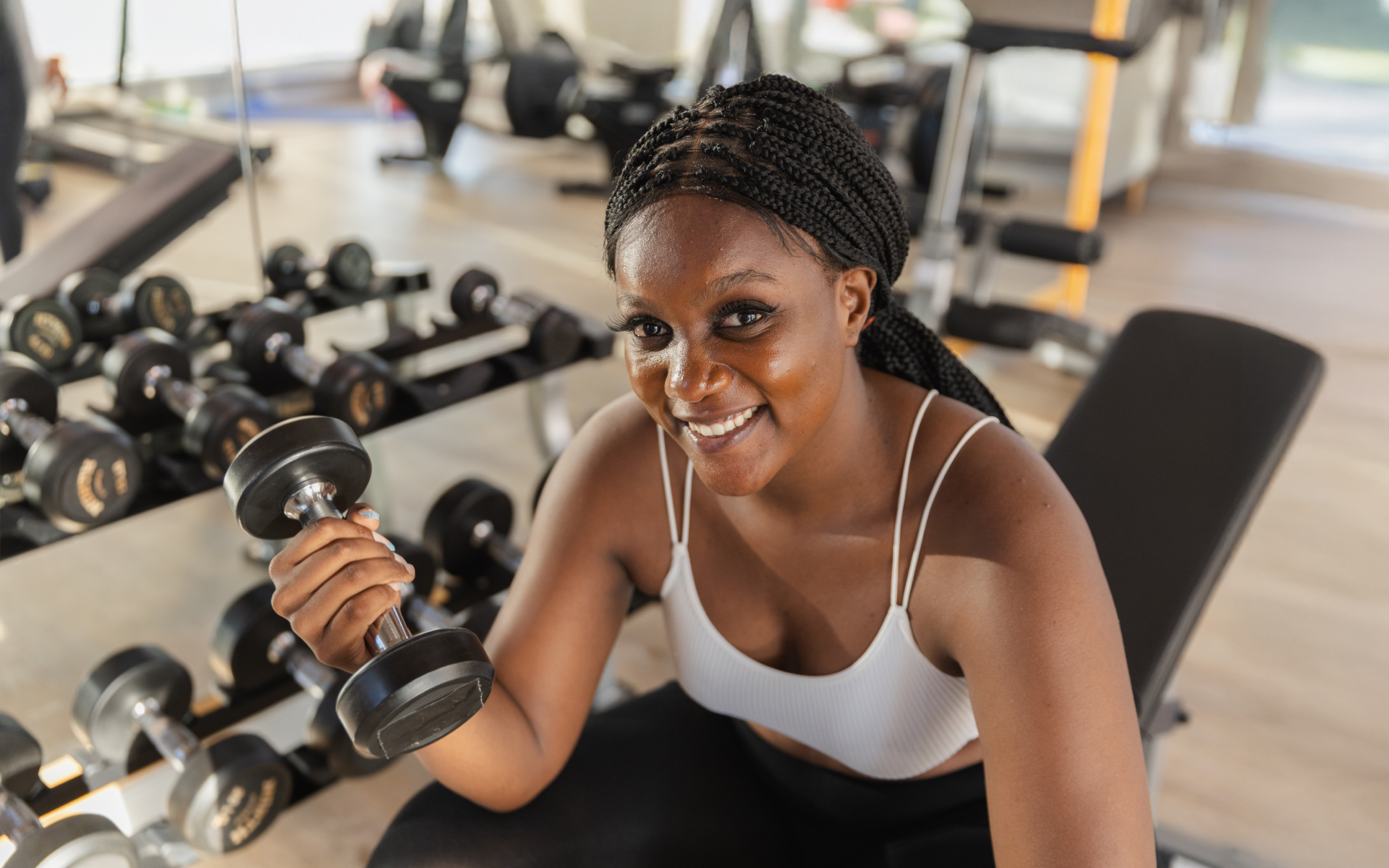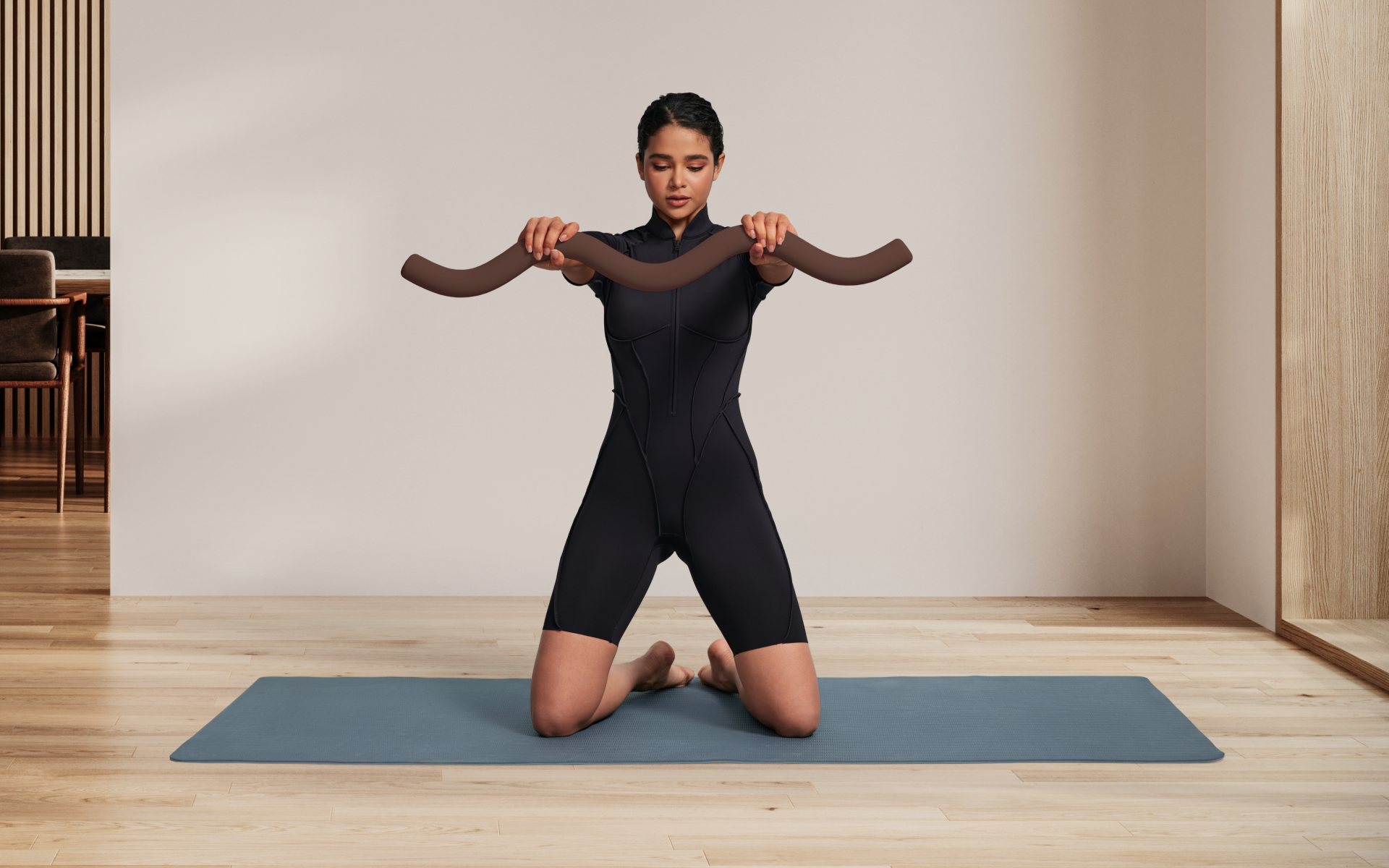Sometimes, working out can feel like a drag, especially when you have been doing it for a while. You’re bored of the same old routine or not feeling motivated enough to push yourself.
But with only a few months left in the year, it’s the perfect time to amp up your workout game and challenge yourself before the year ends. Here are 6 workout challenges that will keep you motivated and help you achieve your fitness goals.
But first, let’s discuss what challenges you can incorporate into your workout routine.
Why Do Workout Challenges?
Many have asked what are the benefits of workout challenges? This question is valid because you want to know why these challenges are worth your time.
Here are a few of the benefits we’ve noticed:
You Stay Motivated and Engaged
One of the most significant advantages of workout challenges is their ability to keep you motivated and engaged. When you have a specific goal to work towards, such as completing a 30-day plank challenge or running a set distance within a month, it keeps your fitness routine from becoming mundane.
Research indicates that setting clear and achievable goals helps maintain motivation and enhances adherence to exercise routines, preventing the usual drop-off after initial excitement fades.
You Break Through Plateaus
It’s easy to hit a plateau when you do the same workouts day in and day out.
Workout challenges introduce new activities and higher intensities to your routine, which can help break through these plateaus.
You spur muscle growth and improve endurance by forcing your body to adapt to new demands. Evidence suggests that varying your workout intensity and exercises over time can significantly improve strength and cardiovascular health (1).
Read more: Gamify Exercise: How to Turn Exercise Into Play
You Keep Things Fresh and Fun
Repetition can lead to boredom, so challenges spice things up by introducing new elements to your routine, keeping things fresh and exciting.
Whether trying a new exercise or setting unconventional goals, the novelty can encourage you to stay committed. Studies have shown that exercise adherence improves when individuals perceive their workouts as enjoyable and diverse.
You Benefit from a Sense of Community
Many coaches and fitness experts design these workout challenges for groups or involve some level of community participation. This sense of community can provide support, encouragement, and accountability.
Participating in a group setting, even virtually, can help you push through tough days and celebrate achievements together. According to various psychological studies, social support in physical activities improves adherence and satisfaction (2).
You Track and Measure Your Progress
Workout challenges usually come with clear criteria and timelines, allowing you to track and measure your progress more efficiently. The tracked data provides a tangible way to see how far you’ve come, but it also reinforces the habit of goal setting and achievement.
Knowing that you can meet small goals boosts your confidence and motivates you to take on even more significant challenges in the future. The research underscores the importance of tracking progress to increase motivation and improve outcomes (3).
You Develop a Stronger Mindset
Finally, combining novelty, community, and measurable progress helps develop a stronger mindset. Facing and overcoming new challenges builds mental resilience, which translates to other areas of your life.
Regular exercise (i.e., fitness challenges) has improved mental health and cognitive function, making you physically stronger and mentally sharp (4).
If you wish to free yourself from all the extra pounds that have been weighing you down for way too long, start using the BetterMe: Health Coaching app and overhaul your entire life!
Should I Do a Fitness Challenge?
Many of us would benefit from workout challenges. However, you need to consider a few things before jumping into a challenge:
What’s Your Current Fitness Level?
Before jumping into any workout challenge, assessing your current fitness level is essential. Challenges often require a certain baseline of fitness, whether it’s strength, endurance, or flexibility.
Knowing where you stand will help you select the challenge that fits you best. This understanding will prevent injuries and ensure you get the most out of the experience. According to the American Council on Exercise (ACE), assessing your fitness level through preliminary tests or evaluations can help tailor your approach and maximize benefits (5).
How Much Time Do You Have for Exercise?
Workout challenges frequently come with a set timeframe and schedule, requiring consistent time commitment. Consider your current schedule and how much time you can dedicate to the challenge.
Studies indicate that people who set aside designated times for exercise are more likely to stick with it long-term (6). Planning ahead minimizes stress and increases the likelihood of completing the challenge successfully.
Review Physical Limitations and Past Injuries
Before participating in a workout challenge, it’s crucial to be mindful of any physical limitations or past injuries. Specific exercises may exacerbate existing issues. Listen to your body; modifications may be necessary to accommodate individual differences.
The Obesity Action Coalition emphasizes that understanding your body’s limitations can prevent further injury and promote safe exercise habits (7).
Have You Defined Your Goals Clearly?
Determine what you wish to get out of the challenge.
Is it to enhance cardiovascular health, gain muscle, lose weight, or simply try something new? Clear goals will guide your progress and decisions throughout the challenge.
Research published in the Journal of Sport and Exercise Psychology suggests that goal setting is an effective motivational tool in enhancing exercise performance (8).
Prepare for Mental and Emotional Demands
While physical readiness is critical, you must mentally prepare yourself. Challenges can be demanding, so prepare for potential emotional highs and lows.
According to a study from the American Psychological Association, maintaining a growth mindset—viewing challenges as opportunities for growth rather than obstacles—can enhance resilience and perseverance in physical tasks (9). Understanding this can help manage expectations and increase satisfaction.
What Workout Challenges Are There?
You or a helpful coach can transform any exercise routine into a workout challenge.
A workout challenge has these qualities:
- A specific goal: Exercise goals include running a 5k and improving your mental focus during yoga practice.
- A set timeframe: Challenges typically have a designated time frame, whether a week, month, or longer.
- A structured plan or routine: Workouts are designed with specific exercises and intensities to help you reach the set goal within the given timeframe.
- Clear rules and guidelines: Challenges come with explicit criteria for success, such as completing a certain number of reps or following a particular diet.
Here are 6 workout challenges worth trying:
1. The 30-Day Squat Challenge
The 30-Day Squat Challenge is perfect for increasing lower body strength and endurance, whether you’re a beginner or have some experience.
The challenge involves performing squats daily, with reps increasing incrementally. Starting with 20 squats daily and gradually increasing by 5 to 10 squats every few days is ideal for beginners.
Exercise Steps:
- Stand with feet shoulder-width apart.
- Lower down into a squat, ensuring knees don’t pass toes.
- Return to standing position.
Once a beginner completes the 30-day period, they can progress to intermediate by incorporating weights or trying variations like jump squats. Skills gained include improved leg strength and balance, making it a popular workout challenge at home.
Read more: 30-Day Keto Challenge: Will Upping Your Fat Intake Help You Lose Weight?
2. The Plank Challenge
The Plank Challenge focuses on core strength and stability—one of the essential workout challenges for beginners. It involves holding a plank position daily for an increasing duration.
Exercise Steps:
- Start by holding a plank for 20 seconds.
- Increase the duration by 10 seconds every three days.
After completing this challenge, graduates often experience enhanced core stability, opening up opportunities for more complex ab and core exercises.
For advanced levels, try side planks or planks with leg lifts.
3. The Push-Up Challenge
The Push-Up Challenge is among the most common workout challenges for men, and is an excellent choice for women. Its primary focus is on building upper body strength, but it will also provide core strength and stability benefits. It involves completing a set number of push-ups daily.
Exercise Steps:
- Start by doing 5 push-ups (or kneeling push-ups if necessary), maintaining proper form.
- Increase reps by 2-5 every couple of days.
Progressing involves experimenting with different push-up variations such as incline or decline push-ups. By the end, upper body muscle strength and endurance often improve significantly.
4. The Yoga Flow Challenge
The Yoga Flow Challenge invites participants to follow a daily yoga routine ideal for flexibility and mental focus. It’s a gentle workout challenge that you can do anywhere.
Exercise Steps:
- Begin with a 10-minute sequence like Sun Salutations.
- Gradually increase session length by practicing more sequences.
Individuals might find enhanced mental calmness and flexibility as skills develop, encouraging them to try more challenging poses or longer flows.
5. The Jump Rope Challenge
This challenge combines cardio with agility and is excellent for full-body conditioning. It’s among the most fun workout challenges at home for people with limited time availability.
Exercise Steps:
- Jump rope for 1 minute, maintaining a steady pace.
- Increase by 30 seconds every few days.
Beginners mastering this will see improvements in cardiovascular health and can progress by incorporating different jump styles or increasing overall duration.
6. The Couch to 5k Challenge
The Couch to 5k Challenge is a beginner-friendly running plan to build cardiovascular endurance and prepare individuals to run 5 kilometers over several weeks.
Couch to 5K is one of the best workout challenges for women and men who want to run more.
Exercise Steps:
- Follow a weekly schedule, alternating between running and walking.
- Gradually reduce walking intervals as running stamina builds.
Participants typically acquire increased stamina and mental perseverance. Transitioning to intermediate involves setting new distance goals or improving pace, highlighting this as one of the versatile workout challenges for beginners. Don’t ramp up distance or pace by more than 10% per week to reduce the risk of overuse injury.
Which workout challenge is best for a beginner?
That depends on your fitness goals and preferences. However, each fitness challenge above could be the best workout challenge for you.
For beginners, look over each workout challenge you are interested in and start with the challenge you want to try the most. Modify the workouts when they are too challenging, take breaks, and increase progress over time.
How Long Should a Workout Challenge Be?
The length of a workout challenge can vary depending on the goal and individual preferences. There are 1-2 week workout challenges, while others can span several months. It’s essential to choose a timeframe that is realistic and manageable for you.
Consider factors such as your fitness level, schedule, and desired outcome when determining the duration of a workout challenge.
A shorter timeframe may suit more intense challenges, while a longer time frame can be better for gradual progress toward a specific goal.
These 2 person yoga poses are perfect for building trust, improving communication, and enhancing partner flexibility.
What Is the Hardest Workout Challenge?
The hardest workout challenge is subjective and can vary depending on individual fitness levels and goals. However, some challenges are known for their intense physical and mental demand requirements.
Some of the most strenuous workout challenges include:
- The Murph Challenge: A grueling CrossFit challenge that involves a one-mile run, 100 pull-ups, 200 push-ups, and 300 air squats, followed by another one-mile run. Traditionally, this is performed with a weighted vest but does not need to be.
- Ironman Triathlon: An endurance challenge that requires participants to swim 2.4 miles, bike 112 miles, and run a full marathon (26.2 miles) consecutively.
- SEAL Fit Kokoro Camp: A multi-day event designed to test an individual’s physical and mental toughness, often used as a selection process for Navy SEAL candidates.
It’s essential to consult with your doctor before attempting any of these workout challenges to ensure it is medically safe for you to do so. Working with a certified coach or trainer to ensure proper training programming is advisable.
Always listen to your body and modify exercises or rest when necessary.
BetterMe will shake off your mental funk, rid you of your energy-zapping habits, and help you sculpt the body of your dreams. Intrigued? Hurry up and change your life for the better!
Do 30 Day Workout Challenges Work?
The effectiveness of 30-day workout challenges can vary depending on individual commitment and effort. They can be a great way to kickstart a fitness journey or introduce individuals to new exercises and routines.
However, results can only be permanent if you can maintain healthy habits after you complete the challenge. It’s crucial to continue incorporating regular exercise and healthy eating habits for long-term benefits.
For the best results, try a 30 days full body challenge, to get familiar with working all of the muscles in your body, then continue it after the 30 days if it fits your lifestyle and you enjoy it.
A 30-day full body challenge can significantly improve your overall fitness by engaging all major muscle groups, which enhances cardiovascular health, muscular strength, and endurance.
Studies show that such challenges can also boost metabolism and promote weight loss, making them an effective way to build a solid fitness foundation.
Use these challenges to motivate you to maintain healthy habits and prioritize rest days (10)!
Check out these Workout Plans For Couples that help strengthen your relationship while achieving fitness goals together.
The easiest workout ever can vary depending on individual fitness levels and preferences, but walking is often considered one of the simplest forms of exercise. It requires no special equipment, can be done almost anywhere, and is gentle on the joints. Walking helps improve cardiovascular health, boosts mood, and aids in weight management. Other easy exercises include stretching, basic yoga poses, and body-weight exercises like squats or lunges performed at a comfortable pace. Try Chair Yoga For Two for a relaxing bonding experience that enhances flexibility and mindfulness. Working out 2 hours a day can be excessive for some people, especially those new to exercise or with little time available. Overtraining can lead to fatigue, injury, and burnout. For most people, a balanced workout routine that includes 150 minutes of moderate aerobic activity or 75 minutes of vigorous activity per week (or some combination of the two), combined with strength training on two or more days, is sufficient to maintain health and fitness. Listen to your body and adjust your routine as needed. 30 day workout challenges can be healthy if well-designed and appropriate for your fitness level. These challenges often provide structure and motivation to establish a regular workout habit. However, ensure the exercises are safe and balanced, covering different muscle groups and allowing adequate rest and recovery. Individual results may vary, so listen to your body and modify exercises if necessary to prevent injury. Squat challenges can improve lower body strength and endurance if performed correctly. By progressively increasing the number of squats over a set period, you can enhance muscle definition and strength in the legs and glutes (11). However, you can combine squat challenges with various exercises targeting different muscle groups for comprehensive fitness. Proper form is crucial to avoid injury; consult a fitness professional if you need clarification on your technique.Frequently Asked Questions
What is the easiest workout ever?
Is working out 2 hours a day too much?
Are 30 day workout challenges healthy?
Do squat challenges really work?
The Bottom Line
Workout challenges can be an excellent way to push yourself, set new goals, and track progress in your fitness journey. Clear guidelines and rules provide structure and motivation for individuals seeking a change in their routine.
Remember to choose a challenge that suits your fitness level and desired outcome, and always prioritize safety by consulting with a professional before starting any intense workout challenge.
DISCLAIMER:
This article is intended for general informational purposes only and does not serve to address individual circumstances. It is not a substitute for professional advice or help and should not be relied on for making any kind of decision-making. Any action taken as a direct or indirect result of the information in this article is entirely at your own risk and is your sole responsibility.
BetterMe, its content staff, and its medical advisors accept no responsibility for inaccuracies, errors, misstatements, inconsistencies, or omissions and specifically disclaim any liability, loss or risk, personal, professional or otherwise, which may be incurred as a consequence, directly or indirectly, of the use and/or application of any content.
You should always seek the advice of your physician or other qualified health provider with any questions you may have regarding a medical condition or your specific situation. Never disregard professional medical advice or delay seeking it because of BetterMe content. If you suspect or think you may have a medical emergency, call your doctor.
SOURCES:
- Diversity in Training and Why It Matters: Five Good Reasons (n,d,strathconaphysicaltherapy.com)
- The influence of social support on the physical exercise behavior of college students: The mediating role of self-efficacy (2022, pmc.ncbi.nlm.nih.gov)
- Exploring learning outcomes, communication, anxiety, and motivation in learning communities: a systematic review (2023, nature.com)
- Exercise and mental health (2017, sciencedirect.com)
- Physiological Assessments: Muscular Fitness Assessments (2014,ace.org)
- Consistent Morning Exercise May Be Beneficial For Individuals with Obesity (2021,nih.gov)
- CrossFit: Know Your Goals and Your Limitations! (2024,obesityaction.org)
- Goal Setting in Sport and Exercise: A Research Synthesis to Resolve the Controversy (n,d,journals.humankinetics.com)
- Building your resilience (2020,apa.org)
- Do 30-day fitness challenges actually work? (2017, patient.info)
- Progression of volume load and muscular adaptation during resistance exercise (2014,nih.gov)
